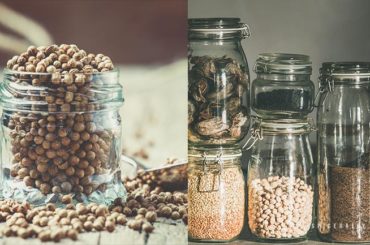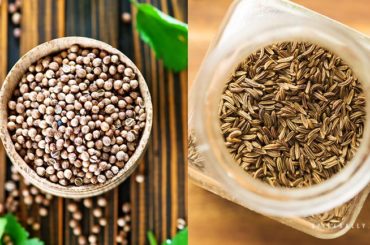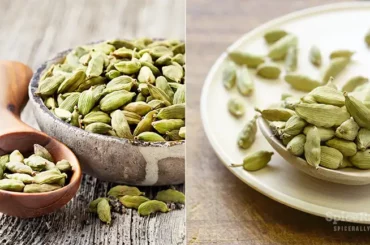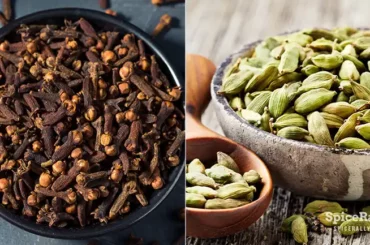You may have been cooking for years, or you may be just new to the kitchen. However, it is imperative to know about cooking essentials to master your journey wherever you stand. That is why SpiceRally thought it is time to examine the difference between spices and herbs from our article this time.
Spices and herbs are two different flavor enhancers that come from distinct parts of the plants. And, thanks to the rich oil content of spices, they are stronger in flavor and aroma than herbs. Although they are both from plants, they can change in the way they are being processed.
So what are the other qualities that distinguish a herb from a spice? We are ready to clear all your confusion and answer all your questions. Read on!
What Is The Real Difference Between Spices And Herbs?
The fundamental difference between spices and herbs comes down to their origins and way of processing. However, as discussed on top, both derive from plants and are used in food for flavoring and aromatizing purposes.

Moreover, these ingredients are packed with nutritional and medicinal values and have great historical importance. They can be used alone in recipes and most of the time used together too.
Generally, spices originate from plant parts such as:
- Seeds
- Barks
- Fruits
- Rhizome
- Stigma
- Unopened flower buds
- Rind
- Bulb
- Stem
- Resin
- Root
On the contrary, herbs are apparently less complicated than spices! They are basically the leafy green part of a particular plant. And, they are often used fresh and in dried forms and have a more herbal touch than spices.
Did You Know That There Are Exceptions?
Interestingly, some plants offer both spices and herbs at the same time. As the most common example, we can take coriander. The leaves and root (cilantro) of the Coriandrum sativum plant is considered a herb. In the meantime, the coriander seeds are regarded as a spice.
In addition, dill is another typical example. The leaves and stems are called dill weed in the dill plant (Anethum graveolens). They are usually a herb, while the dill seeds flavor food as a spice.
The same theory applies to fenugreek too. But here, fenugreek seeds obviously become a spice while fenugreek leaves act both as a herb and a spice. Dried leaves of this plant are extensively used in Indian cooking.
Most Popular Examples For Spices and Herbs
| Spices | Herbs |
| Cinnamon Cloves Nutmeg Ginger Garlic Mace Allspice Turmeric Saffron Fennel Cumin Caraway Black pepper Red chilies Fenugreek Coriander Star Anise Cardamom Vanilla | Sage Oregano Mint Parsley Cilantro Tarragon Basil Rosemary Thyme Bay leaves Curry leaves Chives Dill weed Sorrel Chervil Marjoram Lemongrass Lavender Celery leave |
Spices Vs Herbs – Usage In Cooking
There are more similarities than differences between spices and herbs when it comes to cooking. Both are used in cooking to enhance the flavor, aroma, texture, and quality of a specific dish.
Forms Used
However, in most instances, we see that most herbs are used fresh in cooking. Conversely, spices are always used in dried form. But still, herbs are also employed in dishes in their ground form, while spices also contribute from their scent and flavor in the powdered or ground state.
Ultimately, herbs and spices are used and available in the following forms:
- Dried herbs
- Fresh herbs
- Dried whole spices
- Powdered spices
- Ground spices
- Granulated spices (garlic)
Methods Of Usage In Cooking
Spices are usually more robust in flavor and aroma since they are heavier in their content of essential oil. Therefore, a more quantity of herbs typically goes into the dishes than the amount we generally use with spices.
Spices traditionally work best in cooking dishes. They add a depth of flavor by infusing with other supporting flavors and penetrating deep into particular food. And most of them are used equally in sweet and savory foods.
For example, spices like cinnamon, ginger, allspice, nutmeg, and cloves perform correspondingly better with desserts, sweet baked goods, spicy and savory foods. And apart from giving flavor and fragrance, many spices also work as preservatives and colorants in food.
All those spices and herbs in your spice rack can do more than provide calorie-free, natural flavorings to enhance and make food delicious. They’re also an incredible source of antioxidants and help rev up your metabolism and improve your health at the same time
Suzanne Somers
At the same time, herbs add a more vegetal touch to many recipes. Most of them, like fresh parsley and fresh basil, usually become adorable garnishing on your plate. Some of them even go particularly well with many healthy smoothies and make refreshing drinks.
However, chopped or torn fresh herbs are added by the last cooking stage, while dry herbs are incorporated with slow-cooked recipes.
Storage And Shelf Life
You may already have some fresh herbs lying in a rack of your refrigerator. But, dried spices that you keep in your spice cabinet do not generally go into your fridge.
This is the key difference between spices and herbs when it comes to storage. And, as you know, fresh herbs can only be kept well for a few days even if you keep them in the refrigerator.
However, dried herbs can still be friends with the spice companions in your spice rack. And, the dried herbs tend to lose flavor and aroma faster than the whole spices.
Ground spices also would lose their freshness faster than whole spices, but they can retain longer than the dried herbs.
Conclusion Of The Flavor Debate
So, as you see, the primary difference between spices and herbs is mainly about the origins they come from. In real terms, both of them are crucial elements when you cook that bring so much flavor, aroma, and standard to the food you make.
However, they have nuanced differences when it comes down to the usage of cooking. So, we hope that you got accurate answers to the questions you had about these two culinary components. Remember, it is always important to know what you cook and cook what you know!




